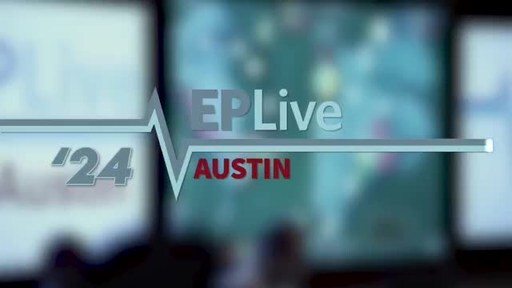Texas Cardiac Arrhythmia Institute at St. David's Medical Center enrolling patients to test stroke-reducing device
News provided by
Texas Cardiac Arrhythmia Institute at St. David’s Medical Center25 Feb, 2019, 10:08 GMT
AUSTIN, Texas, Feb. 25, 2019 /PRNewswire/ -- The Texas Cardiac Arrhythmia Institute at St. David's Medical Center recently began enrolling patients to participate in the DIAMOND-AF II clinical trial to examine the effectiveness of the DiamondTemp System in treating patients with persistent atrial fibrillation, or A Fib. A Fib is a type of irregular heartbeat that affects the electrical system, or "wiring," of the heart muscle, causing the blood to pool in the heart and form clots that can travel to the brain. If left untreated, A Fib can increase the risk of stroke.
The ablation system is made up of an ablation catheter (a thin, flexible plastic tube that is inserted into your body and heart), a radiofrequency generator and an irrigation pump. The generator delivers radiofrequency (RF) energy to the catheter via a unique temperature-controlled approach to create an ablation, which occurs when RF energy travels through the catheter, into the heart tissue to heat up a small area and create a scar to block the irregular heart rhythms causing A Fib. Then the irrigation pump delivers saline to the inside of the catheter to cool the catheter tip during ablation.
"This ablation system allows us to ablate at a higher power in a shorter amount of time with the added feedback provided by instantaneous computer-controlled tissue temperature measurements," Andrea Natale, M.D., F.A.C.C., F.H.R.S., F.E.S.C., executive medical director of the Texas Cardiac Arrhythmia Institute at St. David's Medical Center and principal investigator for the trial, said. "This approach results in better lesions, which could ultimately translate into better outcomes for the patient."
TCAI recently completed enrollment for the DIAMOND-AF study to evaluate the DiamondTemp System for the treatment of paroxysmal A Fib, or A Fib lasting less than one week. The DIAMOND-AF II study is expected to run through next year.
Media Contacts:
Erin Ochoa or Tina Shively
Elizabeth Christian Public Relations
512.472.9599





Share this article